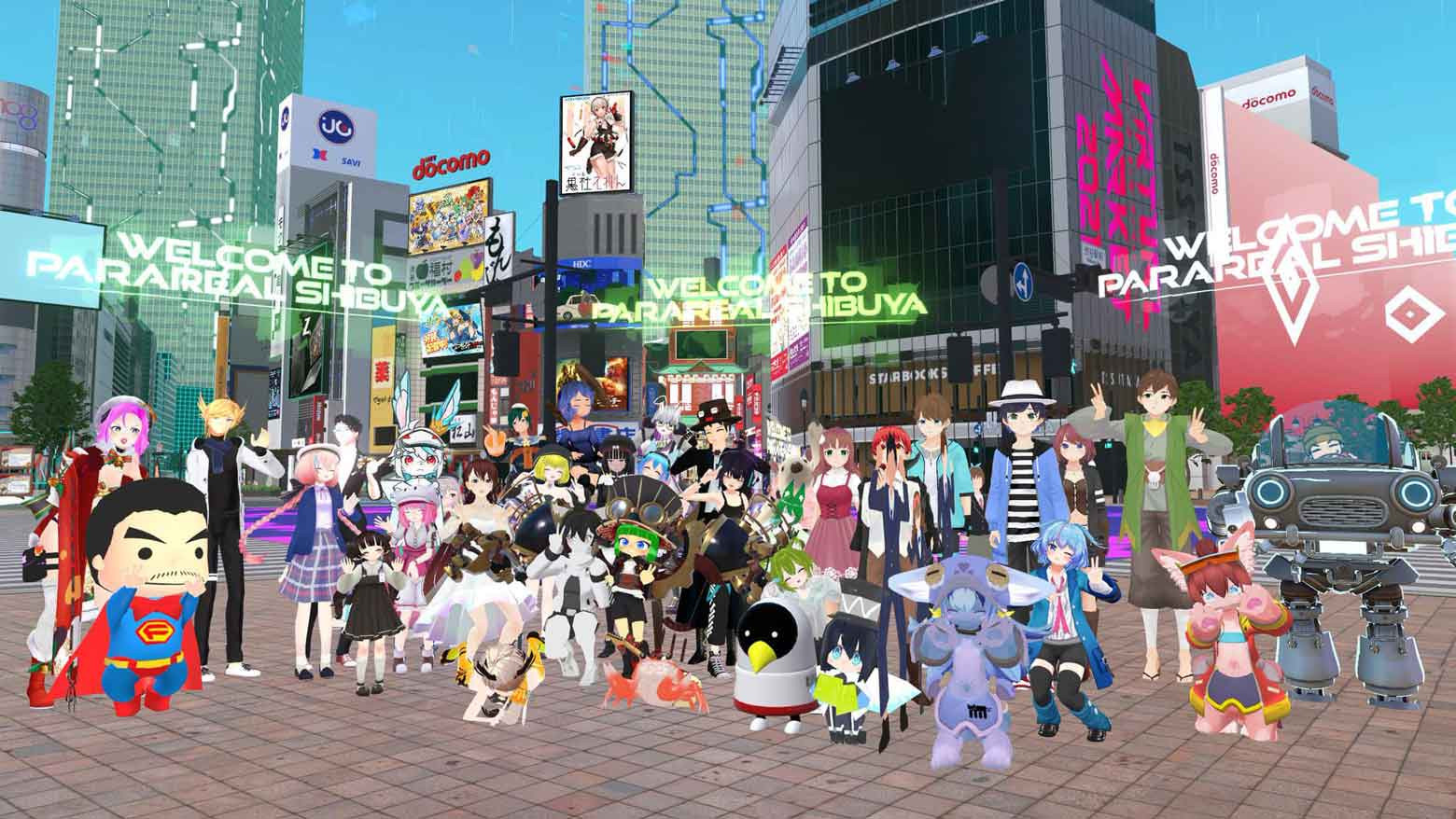Explaining the metaverse
The metaverse is an immersive version of the Internet that users can experience from a first-person perspective. Instead of engaging with the content from the “outside” like we do now, the metaverse will give users the impression that they are present within the content; if they are talking to someone, it will feel like they are physically present with that person.
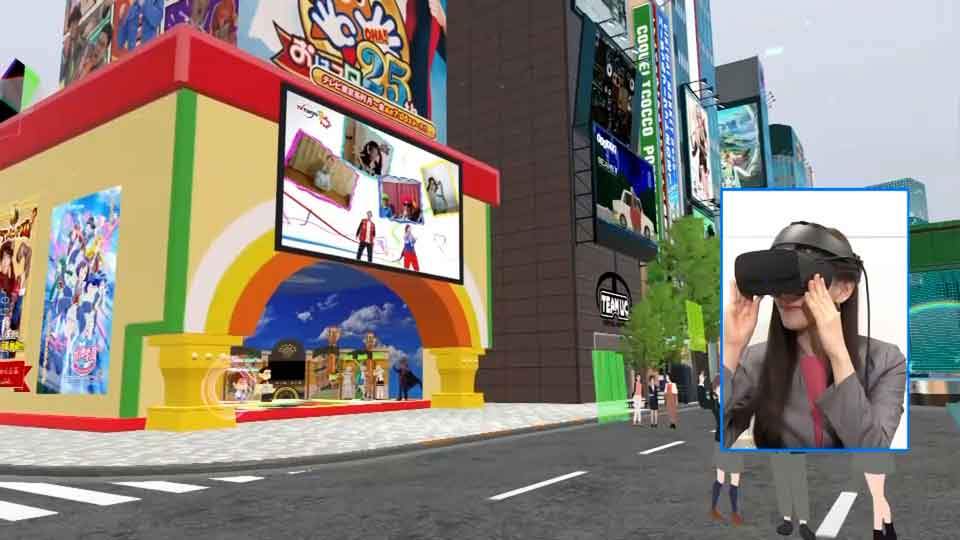
Technologies like Virtual Reality and Augmented Reality make that possible. In VR, users feel present in a fully artificial digital environment, for example, in an alternate universe, by putting on a headset. AR, on the other hand, overlays digital layers on the real-world environment. This is done by having users see the real world through a smartphone screen, like Pokemon Go, or through digital lenses.
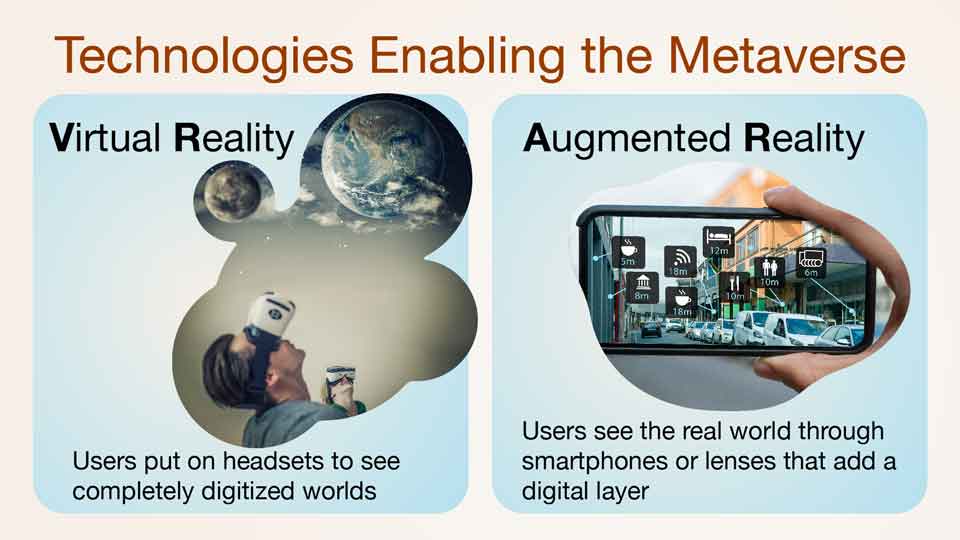
Market potential spurs competition
The market potential of the metaverse is a staggering 8 trillion dollars, according to an estimate by Morgan Stanley. With that kind of money at stake, some leading global brands are making aggressive moves to develop and release their versions of this future world of commerce and entertainment. Sony, NVIDIA and Disney are among the firms rumored to be developing related technology.
Facebook rebrands itself as Meta
Facebook has made no secret of its ambitions, going as far as to rebrand itself as Meta Platforms in October, 2021. The firm has already invested at least 10 billion dollars in its metaverse division Facebook Reality Labs to create AR and VR hardware, software and content – and that number will continue to rise in the next few years. In December, 2021, the company opened Horizon Worlds, a virtual reality world of avatars, to everyone over the age of 18 in the US and Canada. In January, 2022, reports surfaced that Meta Platforms is poaching employees developing Microsoft's AR headsets.

Microsoft made its biggest acquisition in metaverse-related field
Microsoft, meanwhile, planted another flag in the virtual world in January, 2022, when it paid 69 billion dollars to acquire gaming company Activision Blizzard. The software heavyweight has also been developing HoloLens, a headset related to AR that shows digital holograms.
Japanese startup holds metaverse event
While the tech giants fine tune their technology, a Japanese startup is already up and running in this space. Hikky has been holding its Virtual Market every six months or so since August, 2018. The first event attracted just 1,500 people, but since 2020, it’s consistently had more than 1 million visitors from around the world.

Visitors need to don a headset to enter Virtual Market – a multiverse of simulated shopping and entertainment worlds, including cityscapes based on Tokyo’s Shibuya and Akihabara districts. Hikky deploys many tricks to make the event immersive; including replicating real world weather; in other words, whether it is sunny, raining or snowing in Shibuya, it would be the same in Virtual Market. The virtual Shibuya also has buildings that grow taller as more people visit it.

This world may be an illusion, but an increasing number of firms are convinced the money-making opportunities are very real. Big-name retailers, service providers and entertainment companies are signing up to promote their goods and services within Virtual Market. The event has become one of the largest of its kind, holding the Guinness World Record for the most booths at a Virtual Reality market event.
At the latest function, financial firm SMBC Nikko Securities set up a rollercoaster that gives visitors a chance to experience stock market volatility. Those who feel they are ready to do the same in the real world can then interact with the firm’s staff in avatar form. Suzuki Jinya, who planned this booth, says, “We wanted to make finance and investment relatable... and thought that the metaverse, which is fun, would be an ideal place to do that.”

At another booth, customers of clothing retailer BEAMS tried on virtual dresses and jeans in front of virtual mirrors. Items were rendered in 3D to be picked up and examined. Customers could buy avatars wearing the brand’s clothes, as well as the real-world items themselves. Spokesperson Kinoshita Kana explains, “We tend to have a deeper engagement in our virtual store. The experience of meeting people is a little more fun in the metaverse. In the real world, there’s a sense of hesitancy speaking to strangers because of COVID.” She adds that some customers visited the real-world stores after interacting with the clerks in the metaverse.

The event operator is convinced that business is here to stay. “Some booths at Virtual Market have seen sales around a million dollars over a two-week period,” says Hikky CEO Funakoshi Yasushi. Despite the rush of big tech giants into the space, Funakoshi is confident his company can hold its own. It aims to do this by focusing on content quality and user experience, such as by shunning so-called stealth ads. Funakoshi adds, “My desire to compete on a global scale is strong. In order to do that, we acquired funding of about 57 million dollars in the latter half of last year.”

That investment came from Japanese telecom company NTT Docomo, another big name sizing up the metaverse. The firm unveiled new technology in January, 2022, that allows avatars to mirror the facial expressions of their users in real time.
Social and moral implications of the metaverse
While the metaverse sparkles with seemingly huge business opportunities, one expert warns it also has a dark side – one vulnerable to corporate exploitation. Unanimous AI CEO Louis Rosenberg, who has been working in VR and AR fields for over 3 decades, states, “It’s not the technology of the metaverse that’s the concern. It’s the power that the metaverse will give to the companies that are controlling the infrastructure. That’s because in order to create these simulated worlds, the infrastructure needs to really know a lot about everybody who’s participating.” Rosenberg describes the risks as the 3 M’s: monitor, manipulate and monetize.

Why will the metaverse likely “monitor” users?
In regards to “monitor”, Rosenberg warns that the metaverse has the potential to take the privacy and surveillance concerns of the current Internet to a new level. “Platform providers will be able to track what you do, where you go and what you look at... or where your gaze aims at and how long your gaze lingers on something. The technology will very likely be looking back at people, assessing their facial expressions, vocal inflections and even vital signs.” He says that the technology needs to monitor its users in order to create rich simulated experiences in the metaverse, but if the information is used in the wrong way, the damage for society could be catastrophic.
"Social media right now is tracking and profiling users... and then, targeting them with advertising, news feeds and information that’s customized for them. All of these same things will happen in the metaverse, but it will be much worse."
How might the metaverse “manipulate” users?
Rosenberg's second concern is the enhanced ability to “manipulate”. “The key thing to know about the metaverse is that the technology is designed to fool the senses,” he says. In order for users to be immersed in Virtual Reality or Augmented Reality worlds, they need to be made to feel that what they’re seeing and hearing is authentic. If users cannot distinguish between what is real and what is not, Rosenberg worries that this makes them vulnerable to groups with commercial or political motives.
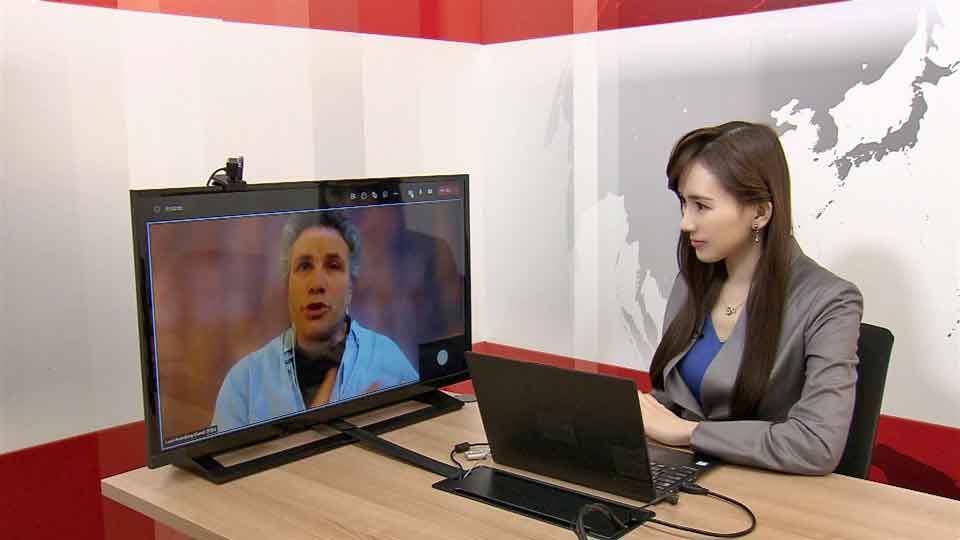
One example he gives is stealth ads. If a visitor to the metaverse is walking down the street and sees people holding the same brand of beverage, they may believe that the drink is popular. But what if the beverage was actually a placed advertisement? Rosenberg cautions, “What you think are authentic, serendipitous experiences in the metaverse could be paid product placements that a third party paid the platform provider to put into your world. You might not know it, but things could be put into your world to manipulate your perception of reality.”
In addition to what you see, who you talk to, too, might be fake in the metaverse. "Platform providers could put simulated people into the metaverse that can engage you in conversational advertising that's intended to promote a particular product, political idea or service. You could be engaged by promotional agents... and not know who's a legitimate other user and who's a paid agent that's there to promote information to you."

Rosenberg adds that because the metaverse, by its very nature, blurs the boundary between what's real and what's not, "If consumers aren't aware of that difference, then the types of advertising, manipulation and misinformation that can be put into those worlds becomes very dangerous. The biggest danger is when consumers can't tell the difference between what's real and what's virtual."
What kind of companies could “monetize” users in the metaverse?
The last M of concern, “monetize”, is the motivation for platform providers to monitor and manipulate. Rosenberg points out that this will be more likely to happen if the big companies currently developing metaverse-related technology do so while keeping their current business models. “Whoever creates the platforms, whether it’s Apple or Facebook or any large corporation, right now, their business model adopted for social media is an advertising model. If that model gets adopted in the metaverse, we’ll have the same problems, but only worse because the ability to monitor and manipulate people will be so much greater.”
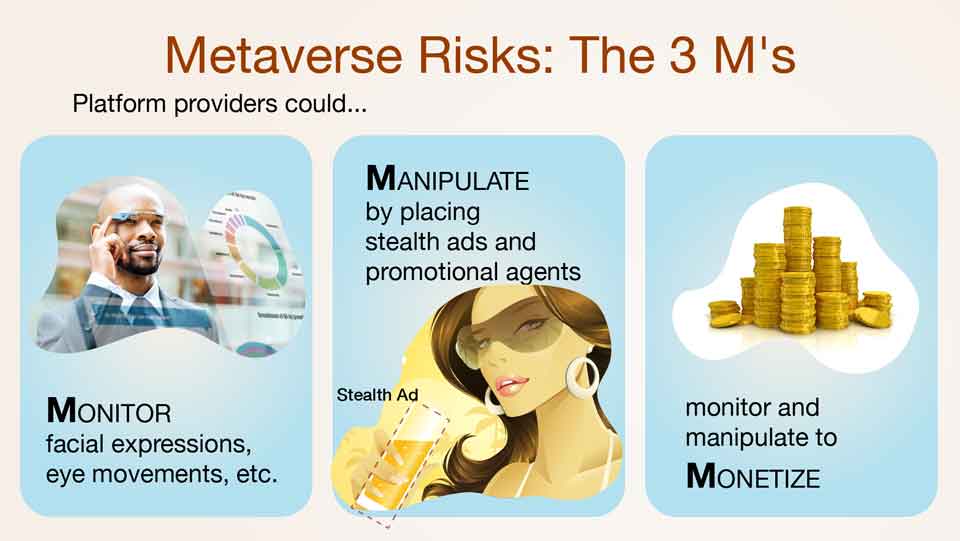
What preventative measures are there?
What can be done to prevent the metaverse from monitoring, manipulating and monetizing users? One way may be to ban advertising as a revenue model for platform providers, who would instead make money from subscription fees.
Whatever solutions emerge, Rosenberg thinks the best way to prevent abuse is government regulation. “Ideally, the platform providers would only be able to use the information they collect on users in real time to give them the simulated experience, but would not store that information over time to create detailed profiles of people.”
Rosenberg cautions that preventive measures need to be taken right away. “Governments and industry bodies really should be focusing on it now so that the problems don’t get built into the infrastructure and we get to the place where it’s really hard to undo.” He says that social media is so controversial now because the abuses got built into its infrastructure.

Rosenberg sees great potential for the metaverse, calling it a "playground for creativity". He asks, "The challenge is, how do you allow the magic for all the creative, amazing things... but not allow people to be misinformed?"
The future of the metaverse
The metaverse promises to offer users other-worldly experiences, and for companies, infinite business opportunities. At present, the final outcome seems to be in the hands of regulators and the moral compasses of service operators. Consumers might want to think about the lessons that can be learned from social media, and demand action from governments, industry bodies and the big corporations before it’s too late. After all, if we are going to be truly immersed in the metaverse – working, shopping and socializing – then we’ll want to make sure it’s a world we want to live in.
